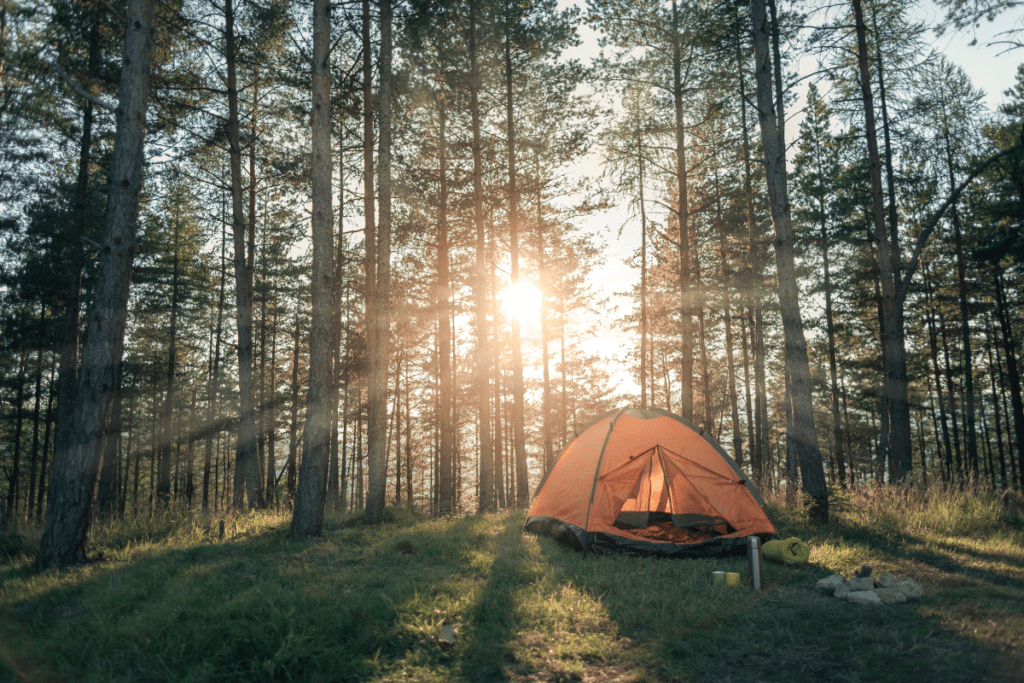As you venture into the great outdoors this summer, it’s important to prioritize your well-being without relying too heavily on hazardous chemicals for protection. However, if there’s anything that can take away from the joy of a glorious summer, it’s those buzzing, biting, and sometimes disease-spreading insects! Before you reach for bug spray, let’s explore some natural precautions that can keep those pesky bugs at bay.
Adjust your outdoor timing: When it comes to mosquitoes, timing is key. Avoid going outdoors 30 minutes before and after dawn and dusk, when these little bloodsuckers are most active. By avoiding these times, you can significantly reduce your chances of becoming a bug buffet.
Wear light-coloured clothing: Mosquitoes are more attracted to dark colours. Wear long sleeve shirts and long pants, and tuck your pants into your socks if you’re walking through long grass to block ticks’ access to your yummy ankles.
Invest in some gear: Investing in a bug jacket can provide you with an extra layer of protection. These lightweight jackets are designed to keep bugs at a distance while allowing you to enjoy your outdoor adventures in peace. Additionally, mosquito netting for your bed can help ensure a good night’s sleep (and peace of mind!).

Use Bug Spray Wisely
While there are many natural precautions you can take, there are some circumstances where insect repellents containing DEET, Picardin and IR3535 may be necessary to ward off mosquitoes that can carry West Nile virus and Lyme disease spreading ticks – both of which can have very serious health effects. However, there are ways to reduce their harm while benefiting from the protection:
- Stay away from aerosol sprays in pressurized containers, which contain chemicals that you’re likely to inhale, and could get in your eyes.
- Don’t bother with bug zappers, treated wristbands, sound-emitting devices, and candles, which are not effective.
- Apply and use the products in a ventilated space.
- Wash the products off at the end of the day.
Embrace the Power of Nature
Encouraging beneficial birds and insects such as dragonflies can help reduce pests, and planting natural bug-repellent plants like marigolds, basil, and rosemary around your outdoor space can help deter bugs naturally:.
- To discourage mosquitoes from hanging around your home, remove any standing water sources and keep your eaves troughs clean. Consider adding mosquito-repelling plants, such as lemon balm and marigolds, to your garden.
- Flies don’t like basil, so having a few basil plants in your home is a good deterrent (and you can use the basil for cooking!). You can also make your own natural fly paper to capture flies by using corn syrup, sugar and brown paper bags.
Essential oils like lavender, citronella, or lemongrass can also offer natural bug-repellent properties. Explore homemade bug sprays using these oils and diluting them in carrier oils for a personalized touch.
SOYBEAN OIL: Soybean Oil provides protection for 3.5 hours against mosquitoes and for up to 8 hours against black flies. There are no age restrictions or limitations on the frequency of use of these products.
CITRIODIOL/P-MENTHANE-3,8-DIOL/ OIL OF LEMON EUCALYPTUS: These provide up to two hours of protection against mosquitoes and up to five hours against blackflies, but should not be used on children under three. These products can be applied up to two times a day and are not recommended for use in areas where West Nile virus is a known risk, or for protection against sand flies.

NATURAL BUG SPRAY DIY
- 8 oz Glass or Aluminum/Steel Spray Bottle
- Apple Cider Vinegar
- Distilled Water
- Essential Oils:
- 40 drops Lemon Eucalyptus
- 20 drops Citronella
- 20 drops Lavender
- 10 drops Lemongrass
Directions:
- Combine all essential oils in a spray bottle, fill half the bottle with apple cider vinegar and shake well to combine.
- Fill the remaining half with distilled water and shake to combine.
To Use:
- Shake before each use as natural separation of water and oils will occur.
- Mist skin and clothes lightly (avoid eyes, and do not use for children under the age of 2).
- Re-spray every 2-3 hours or after swimming.
As you embark on your summer adventures, don’t let the fear of harmful chemicals and misleading labels cast a shadow on your fun. By equipping yourself with knowledge and making conscious choices, you can prioritize your family’s health and enjoy the outdoors safely. We hope you have a fun and toxic-free summer!
Also see: Soak up the Sun: Non-Toxic Sunscreen Tips for a Healthy Summer







